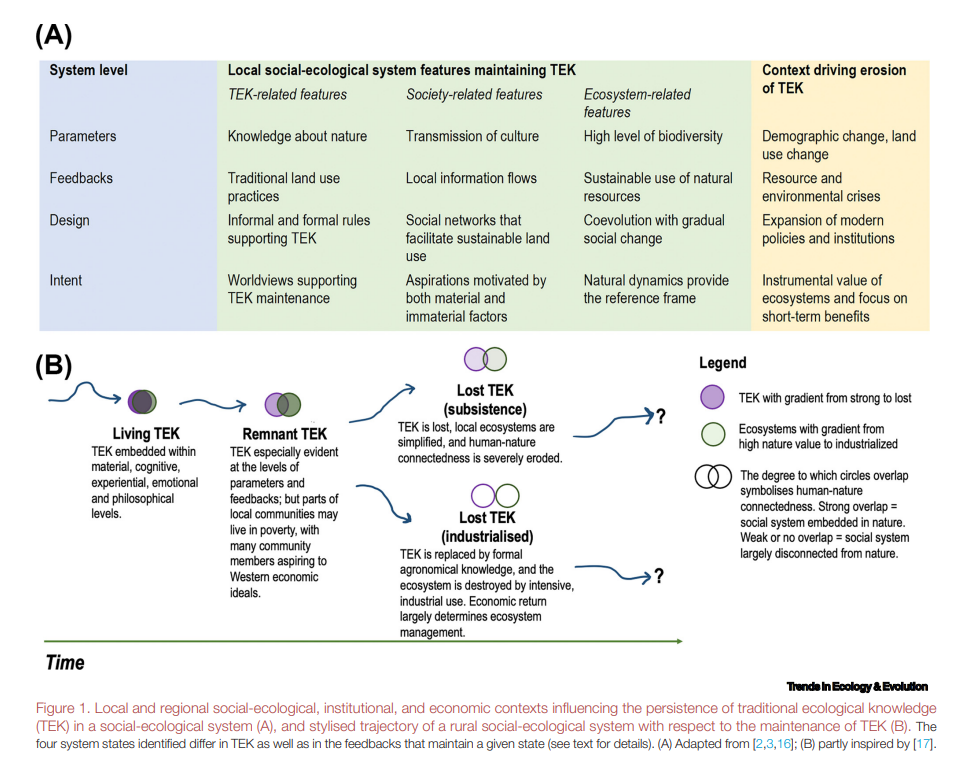With Tibor Hartel as the main author, the first conceptual article developed within our project is published on-line. The article starts from the recognition that Traditional Ecological Knowledge (TEK) is indispensable for maintaining farmlands with high natural and cultural values. TEK is sustained by multiple genuine connections between humans and nature (material, cognitive, experiential, emotional, philosophical and relational), passed throughout generations by learning. In our article we present 4 stages of TEK in the context of a larger socio-economic, value and ecosystem context (see attached figure). The farming societies that maintain Transylvania’s wood-pastures are in stage 2 (see attached figure). The lack of alignment of socio-economic aspirations with TEK and the high natural and cultural values of agrarian landscapes, implies a high vulnerability of these systems. The vulnerability lies in the adoption of modern technology that we (and even the local communities) know will destroy the natural capital of agroecosystems.
In the article we propose 4 working hypotheses for researchers to understand the possible paradoxical situations around TEK:
Mismatch between socio-economic aspirations and actual practices. According to this hypothesis, local practices are traditional, but economic aspirations are actually oriented against maintaining TEK. Better understanding of the contextual nuances and causes of such mismatch, as well as the ways in which local communities navigate these situations, would help guide appropriate development and conservation initiatives at the local level.
Rules and paradigms imposed from outside. The top-level sociopolitical context can impose incentives and ideas on local social-ecological systems that have negative consequences for TEK. Contradictions may arise between actual knowledge of nature and the farming practices used. For example the rules of the Common Agricultural Policy or even the formal education can create conflicting situations between TEK and the new rules and knowledges imposed. In such situations, local people might use agricultural practices that they know are harmful to the environment and would be willing to change the practices if economic incentives and institutions allowed them to do so. Empirical research guided by this hypothesis can elucidate ways in which policies should change to more effectively empower local communities to maintain relevant TEK and sustainably manage agroecosystems.
The corrupt intention of the leaders. Some local communities are in rigidity trap due to corrupt institutions. This can have profound implications for human-nature connections and can dramatically erode human agency and the social capital. Research guided by this hypothesis can elucidate how corrupt institutions negatively affect TEK. It can also evoke ways in which social innovations can help empower local communities and rebuild human-nature connections.
Cultural dilution. The immigration of new members into the local community, people with non-local value systems, cultures and histories can have a strong diluting effect on local TEK and can weaken the cultural substrate necessary for the continued transmission of TEK. Thus, cultural dilution could have a dramatic impact on the human-nature connection and cause profound identity changes in local socio-ecological systems. Research guided by this hypothesis could help discover ways to enable social innovation and renewal without losing traditional human-nature connections and the continued transmission of TEK.

